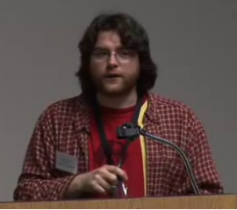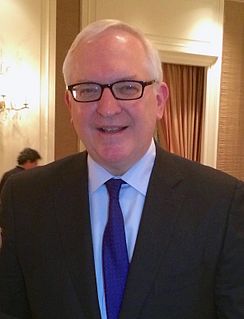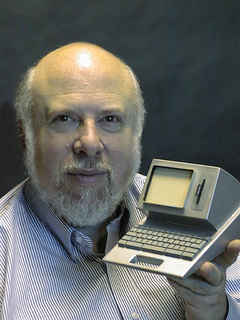Top 148 Linux Quotes & Sayings - Page 3
Explore popular Linux quotes.
Last updated on April 20, 2025.
Dinner with Steven Moffat in Bar Shu, spent mostly in enthusiastic Dr Who neepery. I love my life....As a side note, running Windows Vista on the Panasonic w7 is making me really nostalgic for 1986. Whoever thought I'd get to type things then stare at a blank screen for a bit and one-by-one watch the letters appear? Cory and Mike's 'Why Don't You Run Linux?' talks are staring to seem much more sensible.
I'd argue that everybody wants to do something that matters, and the fact that Linux has had a huge impact on the tech market and is used virtually everywhere is obviously very personally satisfying. I think programming is fun, and the community around the kernel is great, but a project has to be relevant too.
I think [Wine] will be, at a minimum, incredibly useful to archeology, like DosBox has been for playing Wing Commander. Certainly it has been known to save the day with modern titles, too. But to have it as the agreed-upon way to how you play video games on Linux is completely unacceptable for several reasons, both technical and moral.
There are no barriers to entries. Think of this as Linux in terms of software. Anyone can have part of the operating system so long as you pledge allegiance to the ideas. Previously, if you wanted to join al Qaeda, you had to travel to an al Qaeda safe haven, probably in northern Pakistan or Afghanistan. Now all you have to do is get a gun, choose a target, and carry out an attack.
I am confident that we can do better than GUIs because the basic problem with them (and with the Linux and Unix interfaces) is that they ask a human being to do things that we know experimentally humans cannot do well. The question I asked myself is, given everything we know about how the human mind works, could we design a computer and computer software so that we can work with the least confusion and greatest efficiency?
A lot of people want to have market share numbers, lots of users, because that's how they view their self worth. For me, one of the most important things for Linux is having a big community that is actively testing new kernels; it's the only way to support the absolute insane amount of different hardware we deal with.
If you invest in Microsoft or Oracle, or a number of other companies for that matter, you're fundamentally making a bet that there's going to be no innovation. So an investment in Microsoft is a bet that the operating system is going to stay the same, it won't be replaced by Linux, Google Docs, or a mobile platform like iOS or Android.
What I do for a living is somewhat like mercenary prostitution. I spend a lot of energy trying to find games to bring to alternate platforms, like Linux and MacOS, and in my free time, I work on various open source projects, and other freebies like that. So I guess I'm a hooker with a heart of gold, sorta.
When we take a top-tier view of the amount of code showing up inside of Linux today that is either directly related to our Unix System 5 that we directly own or is related to one of our flavors of Unix that we have derivative works rights over--we don't necessarily own those flavors, but we have control rights over how that information gets disseminated--the amount is substantial. We're not talking about just lines of code; we're talking about entire programs. We're talking about hundred [sic] of thousands of lines of code.
The Linux kernel is under the GPL version 2. Not anything else. Some individual files are licensable under v3, but not the kernel in general. And quite frankly, I don't see that changing. I think it's insane to require people to make their private signing keys available, for example. I wouldn't do it. So I don't think the GPL v3 conversion is going to happen for the kernel, since I personally don't want to convert any of my code. You think v2 or later is the default. It's not. The _default_ is to not allow conversion. Conversion isn't going to happen.












